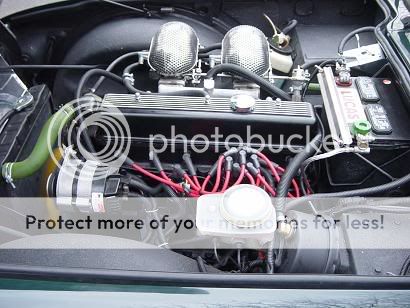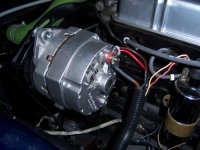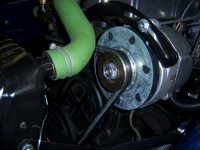-
 Hi Guest!
Hi Guest!
You can help ensure that British Car Forum (BCF) continues to provide a great place to engage in the British car hobby! If you find BCF a beneficial community, please consider supporting our efforts with a subscription.
There are some perks with a member upgrade!**Upgrade Now**
(PS: Subscribers don't see this gawd-aweful banner

Tips
- We have a special forum called "Member Articles" where you can submit actual articles for consideration for publication. Learn More
- Don't have an Avatar? If not, your avatar will default to the 1st character in your username. Go into "Account Details" to change your Avatar.
- Some basic forum navigation info: click
Hey - did you know if you click on the title of a thread it will take you to the first unread post since you last visited that thread?
- Hey Guest - Is your British Car Club in our Clubs database? If not, send me a PM - Basil

- Looking for a local club? Click the "Clubs" tab above and browse hundreds of clubs world-wide.
- Add Android or iPhone APP: click
- Did you know - any picture or video you add in your posts in any marque-specific forum will also get added to the Media Gallery automatically.
- A few more tips about posting and replying: click
- Hey there Guest - be sure to keep your profile page up to date with interesting info about yourself: learn more
- More tips and tricks on Posting and Replying: click
 STOP!! Never post your email address in open forums. Bots can "harvest" your email! If you must share your email use a Private Message or use the
STOP!! Never post your email address in open forums. Bots can "harvest" your email! If you must share your email use a Private Message or use the  smilie in place of the real @
smilie in place of the real @
- Want to mention another member in a post & get their attention? WATCH THIS

- So, you created a "Group" here at BCF and would like to invite other members to join? Watch this!
- Hey Guest - A post a day keeps Basil from visiting you in the small hours and putting a bat up your nightdress!
- Hey Guest - do you know of an upcoming British car event?
 Pretty Please - add it to our Events forum(s) and add to the calendar! >> Here's How <<
Pretty Please - add it to our Events forum(s) and add to the calendar! >> Here's How << 
- Hey Guest - you be stylin'
Change the look and feel of the forum to fit your taste. Check it out
- If you run across an inappropriate post, for example a post that breaks our rules or looks like it might be spam, you can report the post to the moderators: Learn More
- If you would like to try some different "looks" or styles for the site, scroll to the very bottom, on the left and click the Style Selector.
You are using an out of date browser. It may not display this or other websites correctly.
You should upgrade or use an alternative browser.
You should upgrade or use an alternative browser.
An Alternate Alternator?
- Thread starter kodanja
- Start date
TR3driver
Great Pumpkin - R.I.P
Offline
I helped a friend do the Bosch thing; it did indeed go on with the absolute minimum of modification and worked quite well afterwards. Totally solved his issue with not having enough juice to run his high-power stereo at idle.
But, IMO, the advantage of the Bosch conversion is also it's biggest disadvantage. The Bosch still uses that spade-type disconnect that the Lucas uses, which IMO is inadequate for long-term reliability. I would much prefer a bolted connection for such high current and high temperatures.
But, IMO, the advantage of the Bosch conversion is also it's biggest disadvantage. The Bosch still uses that spade-type disconnect that the Lucas uses, which IMO is inadequate for long-term reliability. I would much prefer a bolted connection for such high current and high temperatures.
Brosky
Great Pumpkin
Offline
<div class="ubbcode-block"><div class="ubbcode-header">Quote:]But, IMO, the advantage of the Bosch conversion is also it's biggest disadvantage. The Bosch still uses that spade-type disconnect that the Lucas uses, which IMO is inadequate for long-term reliability. I would much prefer a bolted connection for such high current and high temperatures. [/QUOTE]
Very good point Randall.
Does anyone have the complete Delco conversion information? We should have that in the WiKi for future reference.
Very good point Randall.
Does anyone have the complete Delco conversion information? We should have that in the WiKi for future reference.
tomshobby
Yoda
Offline
This is one way.
https://www.mntriumphs.org/Tech_Info/Delco_Alternator_Conversion.pdf
I am going to see what I can work out when I get a little time. I have been thinking going over to a rebuild shop that is close by and getting some ideas.
https://www.mntriumphs.org/Tech_Info/Delco_Alternator_Conversion.pdf
I am going to see what I can work out when I get a little time. I have been thinking going over to a rebuild shop that is close by and getting some ideas.
Brosky
Great Pumpkin
Offline
<div class="ubbcode-block"><div class="ubbcode-header">Quote:] I will probably in the near
future run a new larger wire from the Delco output to the battery because now with a monster 63
amps of current there is the possibility of overloading the smaller wires charging a weak battery.[/QUOTE]
The last sentence of the article is the most important, if you are going above 55amps, per the Brad and the guys at Yankee Auto Electric, here in RI.
future run a new larger wire from the Delco output to the battery because now with a monster 63
amps of current there is the possibility of overloading the smaller wires charging a weak battery.[/QUOTE]
The last sentence of the article is the most important, if you are going above 55amps, per the Brad and the guys at Yankee Auto Electric, here in RI.
YankeeTR
Luke Skywalker
Offline
I've converted several cars and trucks to one wire Delcos...make it fit and simply run the hot wire from the alternator to the battery...you're done! Disconnect the original regulator and toss it/save it. Tape up any wires that may be live.
The other wire that's on the plug is for the idiot light...simply tape it off or cut it off.
The other wire that's on the plug is for the idiot light...simply tape it off or cut it off.
G
Guest
Guest
Guest
Offline
I went with the Autozone Delco-style 7127 alternator. New unit, not rebuilt. Even brought it to an alternator shop to have it taken down and tested. Tested out at 66 amps. This is a 3-wire alternator, not a 1-wire. I was advised against using a 1-wire, not sure why. I used a 8 gauge wire from the alternator to the battery. The alternator shop popped a little better bearing in it for me, just as a precaution. They said everything else was as good as it gets.
davidk
Jedi Trainee
Offline
I went with the later model Delco. I did have to do some modification to the front frame of the alternator and the bracket on the engine (drilled for a larger bolt). There are very good instructions on the VTR website. I think this is an easier change if you have the pre air pump alternator bracket.
Attachments
Brosky
Great Pumpkin
Offline
Well, here's the link, for future reference:
https://www.vtr.org/maintain/alternator/conversions.shtml
https://www.vtr.org/maintain/alternator/conversions.shtml
tomshobby
Yoda
Offline
YankeeTR said:I've converted several cars and trucks to one wire Delcos...make it fit and simply run the hot wire from the alternator to the battery...you're done! Disconnect the original regulator and toss it/save it. Tape up any wires that may be live.
The other wire that's on the plug is for the idiot light...simply tape it off or cut it off.
I agree, and that is what I have in mind but want to take my car over and talk things over first. The beauty of it is the original harness is not compromised.
TR3driver
Great Pumpkin - R.I.P
Offline
Dan left out one important (to me) disadvantage to the "one wire" route. It also eliminates the 'sense' wire, meaning that the alternator/regulator 'sees' a higher voltage than the battery does when the alternator is charging. This amounts to throwing away part of the alternator's capacity, because the regulator will reduce output when it sees the higher voltage.
After going to all that work to improve charging, why settle for second best ?
After going to all that work to improve charging, why settle for second best ?
YankeeTR
Luke Skywalker
Offline
There are probably tens of thousands of one-wire conversions happily roaming the highways of North America without any problems. Not that the other deal won't work...I just don't see any advantage to doing the extra work when you just grab a spool of wire and hook up one wire without doing any soldering or fiddling with the wiring. Some guys are going to screw up because it's beyond their experienece level...wiring really is scary to many folks.
But what do I know? I'd probably retrofit a Lucas generator to a TR6 because alternators are too new-fangled for me!
But what do I know? I'd probably retrofit a Lucas generator to a TR6 because alternators are too new-fangled for me!
G
Guest
Guest
Guest
Offline
davidk said:I went with the later model Delco. I did have to do some modification to the front frame of the alternator and the bracket on the engine (drilled for a larger bolt). There are very good instructions on the VTR website. I think this is an easier change if you have the pre air pump alternator bracket.
A couple of things you might consider is have your (or do it yourself) alternator "clocked" to rotate the electrical connections out of that cluttered area near the plugs and engine block out to the outer side near the fender well. This allow easy access to the plug-in connector. Also, go to any GM dealer and you can find (usually on the shop floor) an old rubber alternator boot to cover that hot wire. The older Delco setups came with this protective boot to keep this very hot wire covered and protected from inadvertent grounding out. A safety thing. I literally found one on the shop floor at our Chevy dealer.
G
Guest
Guest
Guest
Offline
Also, that bracket everyone seems to use to hold the Delco alternator is available at virtually every auto parts store and comes in a chromed universal fit for "hot rods". It requires some grinding by you and most people end up grinding all the chrome off it and painting it. It can be seen in David's photo above.
foxtrapper
Jedi Trainee
Offline
Myself, I don't much care for the Delco conversion. And I'm running one currently quite successfully.
The units are big, and don't look right imo. Visually I much prefer the little Bosch or Nippondenso alternators. Their appearance is much more suited to the application.
Functionally a good Delco is a fine alternator. BUT...finding a good Delco in the sea of cheapo poorly rebuilt units is a bit expensive. Yes, you can buy a rebuilt Delco for under $30, but boy do you get what you pay for!
I'd have no fear of running a one-wire alternator on a street car. They don't work well on tractor conversions. But that's because they take a fair amount of rpms to kick in and start charging. Not a problem on a car engine, but somewhat of a problem on low reving tractor engines. On a Triumph with all the wiring in place for a 3-wire alternator, I wouldn't bother with the slight expense of a 1-wire alternator.
The units are big, and don't look right imo. Visually I much prefer the little Bosch or Nippondenso alternators. Their appearance is much more suited to the application.
Functionally a good Delco is a fine alternator. BUT...finding a good Delco in the sea of cheapo poorly rebuilt units is a bit expensive. Yes, you can buy a rebuilt Delco for under $30, but boy do you get what you pay for!
I'd have no fear of running a one-wire alternator on a street car. They don't work well on tractor conversions. But that's because they take a fair amount of rpms to kick in and start charging. Not a problem on a car engine, but somewhat of a problem on low reving tractor engines. On a Triumph with all the wiring in place for a 3-wire alternator, I wouldn't bother with the slight expense of a 1-wire alternator.
G
Guest
Guest
Guest
Offline
Didn't the TR6 come at one point with the Delco alternator from the factory??
T
Tinster
Guest
Guest
Offline
Paul,
I have several step by step "how tos" with full
photographic explanations.
I cannot post any of them in WIKI because WIKI does
permit pdf files to be imported.
My "How to" refurbish the rear suspension is a popular
essay on the internet but the members here cannot take advantage of it without looking in a search engine.
Maybe some of the forum mecahnical gurus could author some
"How To" essays for us TR owners that know very little about things mechanical?
But not having pdf available is show stopper, IMHO.
d
I have several step by step "how tos" with full
photographic explanations.
I cannot post any of them in WIKI because WIKI does
permit pdf files to be imported.
My "How to" refurbish the rear suspension is a popular
essay on the internet but the members here cannot take advantage of it without looking in a search engine.
Maybe some of the forum mecahnical gurus could author some
"How To" essays for us TR owners that know very little about things mechanical?
But not having pdf available is show stopper, IMHO.
d



